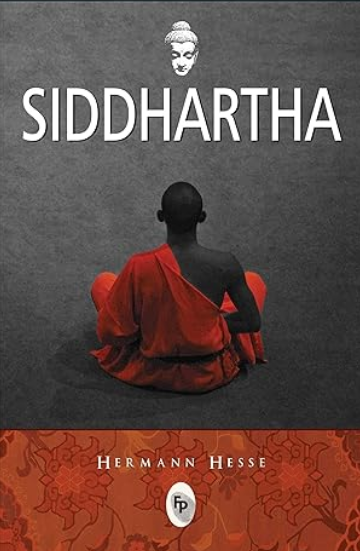Your cart is currently empty!

Siddhartha
Author: Hermann Hesse
“Siddhartha” by Hermann Hesse is a profound novel that explores the spiritual journey of its protagonist, Siddhartha, in his quest for enlightenment. Here’s a detailed summary and some reviews:
Summary
Part 1: The Brahmin’s Son
Siddhartha, the son of a Brahmin, lives a life of privilege and spiritual learning in ancient India. Despite his father’s teachings and the admiration of his friend Govinda, Siddhartha feels unfulfilled and yearns for deeper meaning. He decides to join a group of wandering ascetics called the Samanas, seeking enlightenment through self-denial and meditation¹.
Part 2: With the Samanas
Siddhartha and Govinda practice severe asceticism with the Samanas, but Siddhartha remains dissatisfied. He realizes that enlightenment cannot be achieved through self-denial alone. They hear of Gotama the Buddha, who has attained Nirvana, and decide to seek him out².
Part 3: Gotama
Siddhartha meets Gotama and is impressed by his serenity but believes that enlightenment cannot be taught. Govinda decides to stay with Gotama, but Siddhartha continues his journey alone, seeking his own path to enlightenment².
Part 4: Awakening
Siddhartha experiences a profound awakening by the river, realizing that true enlightenment comes from within and through experiencing life fully. He learns from a ferryman named Vasudeva, who teaches him to listen to the river and find peace in its constant flow².
Part 5: The Ferryman
Siddhartha lives a simple life with Vasudeva, learning the wisdom of the river. He encounters Kamala, a courtesan, and their son, but ultimately realizes that attachment to worldly desires hinders his spiritual growth. After Kamala’s death, Siddhartha’s son leaves him, causing Siddhartha great sorrow but also deeper understanding².
Part 6: Enlightenment
In the end, Siddhartha achieves enlightenment by embracing the unity of all things and the cyclical nature of life. He finds peace and fulfillment, understanding that all experiences, both joyful and painful, are essential parts of the journey².
Reviews
Critical Reception
“Siddhartha” has been praised for its deep philosophical insights and lyrical prose. Readers appreciate its exploration of self-discovery and the spiritual quest for meaning. The novel’s portrayal of Eastern philosophies and its timeless themes resonate with many4.
Reader Reviews
- Goodreads: Many readers on Goodreads highlight the novel’s profound impact on their personal spiritual journeys. They commend Hesse’s ability to convey complex ideas in a simple, poetic manner4.
- LitCharts: The detailed analysis on LitCharts emphasizes the novel’s exploration of themes like the search for self, the nature of enlightenment, and the importance of experience over doctrine³.
Source:
(1) Siddhartha: Full Book Summary – SparkNotes. https://www.sparknotes.com/lit/siddhartha/summary/.
(2) Siddhartha by Hermann Hesse Plot Summary – LitCharts. https://www.litcharts.com/lit/siddhartha/summary.
(3) Siddhartha: A Journey of Self-Discovery by Hermann Hesse – Goodreads. https://goodreads.com/book/show/202030628-siddhartha.
(4) Siddhartha Study Guide | Literature Guide – LitCharts. https://www.litcharts.com/lit/siddhartha.
(5) Siddhartha by Hermann Hesse (Deep Book Summary + Visuals) – Sloww. https://www.sloww.co/siddhartha-hermann-hesse/.
(6) goodreads.com. https://www.goodreads.com/book/show/52036.Siddhartha.

Leave a Reply